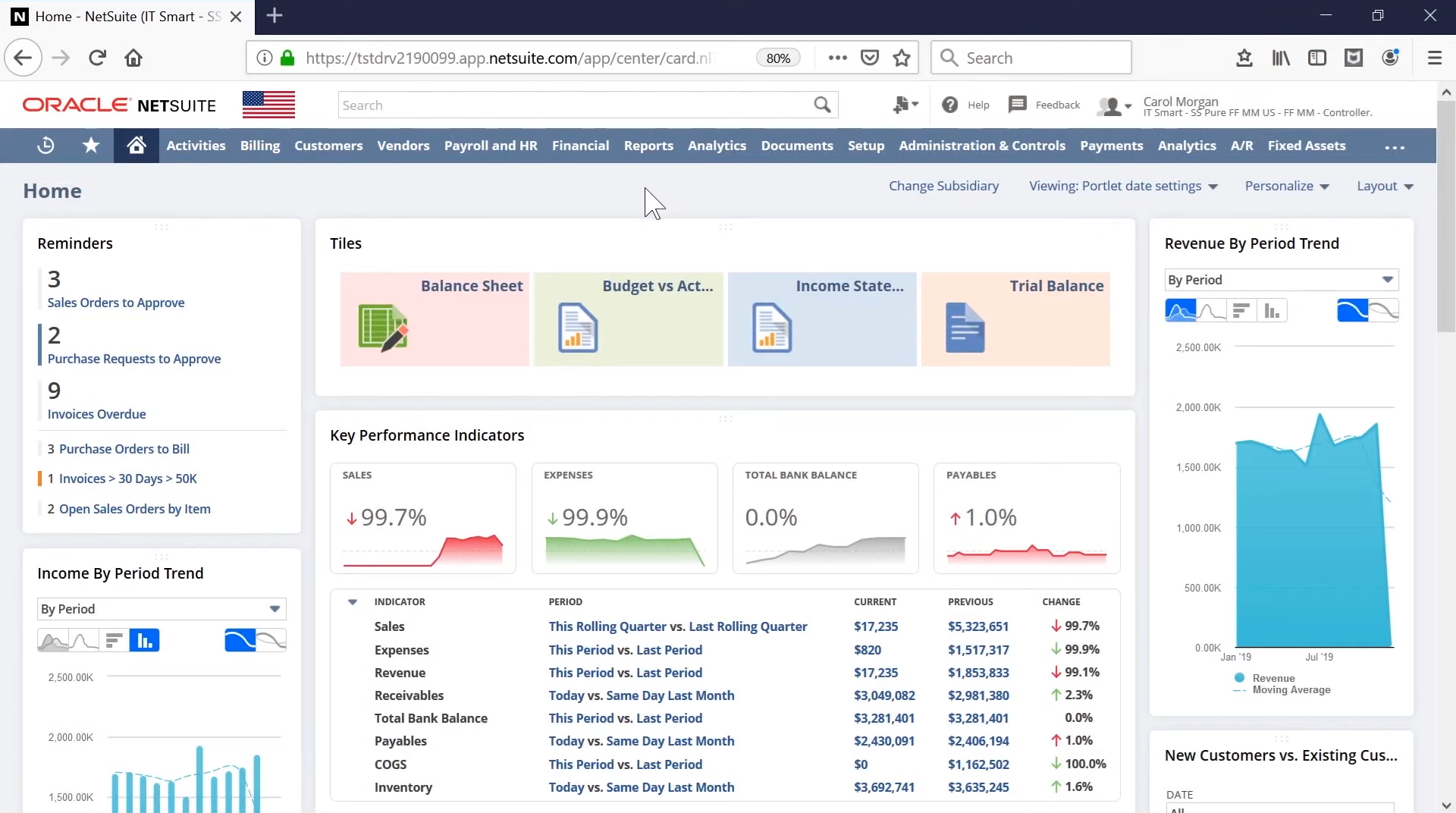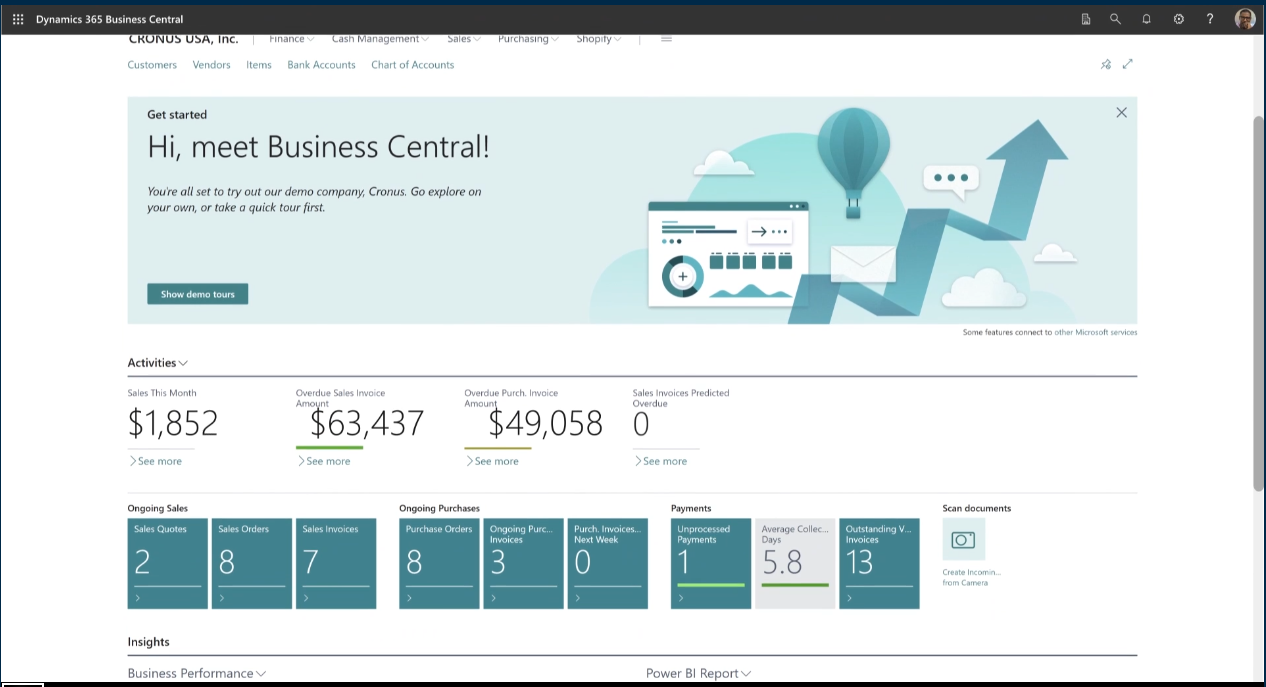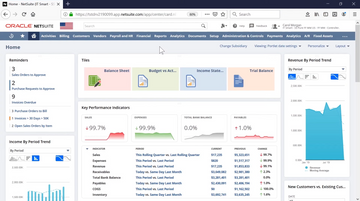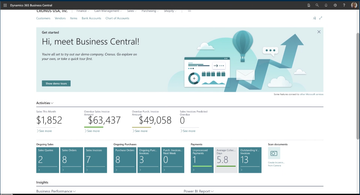Dynamics 365 Business Central vs. NetSuite ERP


-
Price Range
$ $ $ $ $$ $ $ $ $
- Starting Price $1,428/month
- Client OS Web
-
Price Range
$ $ $ $ $$ $ $ $ $
- Starting Price $70/user/month
- Client OS Web
Both NetSuite ERP and Microsoft Dynamics 365 Business Central are heavy hitters in the small business ERP software market and widely used globally. After our review, we feel that Microsoft Dynamics 365 is likely better for most businesses.
Microsoft Dynamics 365 Business Central Overview
Microsoft Dynamics 365 Business Central represents about 24% of the ERP market share, according to 6sense. Its key features include:
- ERP and CRM: Business Central combines the modules of an ERP and CRM system under one roof, streamlining sales and financials.
- Microsoft ecosystem: As mentioned above, Business Central is fully integrated with other Microsoft products like Power BI, Office, and Outlook. It uses the same familiar Microsoft interface, making it a good option for those already acquainted.
- Financial tools: The system includes effective financial tools, such as cash flow forecasting and detailed reporting. However, it does require some accounting knowledge to navigate and use efficiently.
- Straightforward Pricing: Microsoft has the pricing plans for Business Central on its website, starting at $70/user/month for the essentials bundle. NetSuite does not share public pricing information, as businesses are required to speak with a sales representative to receive a quote.
- Limited integrations: While the system integrates well with other Microsoft products, it can be clunky setting up third-party integrations. Conversely, NetSuite easily integrates with hundreds of third-party applications.
NetSuite ERP Overview
NetSuite, acquired by Oracle in 2016, is extremely popular in its own right, being used by over 38,000 customers globally. While outperforming Business Central in some areas, it also comes up short in others.
- Distribution: NetSuite is ideal for distributors and eCommerce sellers, offering strong real-time inventory tracking and management.
- Multi-tenant cloud design: A multi-tenant cloud design means that each customer gets their own personal storage, which is ideal for businesses transitioning from on-premise to the cloud.
- Accounting: Another strength of NetSuite is its accounting module, which includes automated revenue recognition and forecasting. It also supports multi-currency accounting for global businesses.
- Vague Pricing: NetSuite does not publicly share its prices, though businesses can expect to pay at least $1,000/month for starting packages.
Which is Better for Most Businesses?
After our review, we feel that Microsoft Dynamics 365 is likely better for most businesses. It’s user-friendly, offers excellent Microsoft product integrations, and has strong accounting and CRM modules. The platform has straightforward pricing and is more affordable for small businesses.
However, NetSuite could be a more suitable option if your business requires more customization and scalability and needs numerous third-party integrations.
If you’re still uncertain, you can check our roundup of the best ERP software available in the market.


